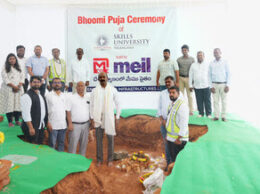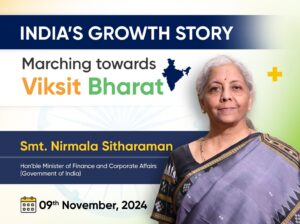Eminent academicians and industry practitioners deliberated the implications of the COVID 19 pandemic and it’s impacts on how the learning could collectively help in restructuring education system and move ahead. The webinar on “Academia & Industry Post Pandemic: New Learnings and Implications” was organised by FORE School of Management, New Delhi in association with Federation for World Academics (FWA).
Dr. Jitendra K. Das, Director, FORE School of Management, New Delhi, was the session moderator of the webinar. He presented B-school’s perspective and said that while everything is in online mode, people adapting to technologies faster will mitigate on missing-out of the learning experiences. Citing a few initiatives taken up at FORE School of Management which resulted in a steep learning curve, Dr. Das said this will ensure continuity for both freshers and final year management students and the experience will lead to better interactions post COVID period. “Along with innovation in pedagogy, transformation in teaching methodology, evolution in examination pattern is required”, he said.
Speaking on ‘Atmanirbhar Bharat’, and Industry 4.0, Dr. Das, said, “I would like to call this ‘Industry A.B (i.e Atmanirbhar Bharat), which should focus on manufacturing within the country while decentralizing the manufacturing units and spreading the entire process of MSME sectors in the different districts or towns.
More than 250 attendees participated in this conference. The eminent dignitaries who shared their views were –
Mr. Avadhesh Dixit, CHRO at Acuity and Mr. Mussarat Hussain, Head-Leadership and HR Transformation at Maruti Suzuki, agreed upon the fact that despondency should not be the default reaction since many sectors are doing extremely well and the various policy countermeasures are likely to lead to significant growth in India by 2022-23. ‘Cognitive flexibility’ is helping organizations and employees ‘from moving away from controlling to empowering’ during the work from home period.
Mr. Harjeet Khanduja, Vice President, HR at Reliance JIO mentioned that predicting for the future and preparing for the future are different things and we should focus on the latter and not the former.
Ms. Saswati Sinha, Head-Human Resources at Cheil India (Samsung Group) said organisations should be responsible and take care of the safety & health aspects of employees and their loved ones which is critical during this pandemic and an additional stress during these work-from-home days. She also stressed upon the importance of ‘re-skilling’ and ‘value addition’ in the existing roles as law of continuation or ‘doing whatever one was doing’ will soon be redundant.
Mr. Vikas Dua, Chief HR mentor at Attayn presented the perspective of the ITES and BPO industries emphasized close supervision of workers, which has now changed with work from home. From direct ‘command and control to remote control’ thorough automation are important developments of the pandemic.
Dr. Irfan A Rizvi, Member, FWA, and Professor at IMI, New Delhi echoed the perspective that making predictions about the future without preparing for scenarios is futile. Citing historical pandemic situations like the Spanish Flu, Dr. Rizvi said, “Human Beings have proved time and again that they are capable of adapting and evolving whenever survival was under threat”.
On this note Dr. Das added that while the institutes enjoy a certain degree of lead time when it comes to adaptability, students need to adapt fast as it is time bound for them.
The webinar provided much needed hope and optimism in a time of confusion.









